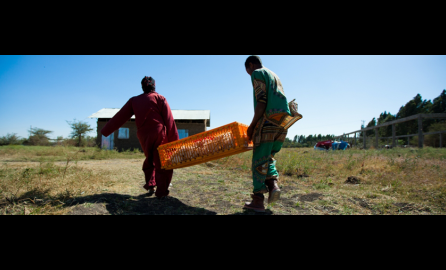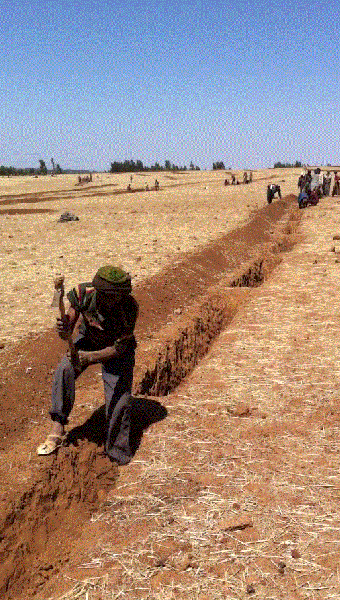Project Details
Background
The PSNP is a flagship programme of the Government of Ethiopia in addressing chronic food insecurity in the country. It started in 2005 as a component of the Food Security Programm (FSP) replacing the emergency appeal system (food aid) which attempted to address both chronic and transitory food insecurity.
CRIS decision Number: 2008/20930 (Link to CRIS)
Budget: EUR 58,000,000
CRIS decision Number: 2010/21962 (Link to CRIS)
Budget: EUR 61,580,000
Instrument: European Development Fund
Objectives
The objective of the PSNP is to assure food consumption and prevent asset depletion for food insecure households in chronically food insecure woredas, while stimulating markets, improving access to services and natural resources, and rehabilitating and enhancing the natural environment.
Key aspects:
- PSNP is a flagship government managed programme supported by development partners; it is a model of aid effectiveness and harmonization among development partners and between donors and GoE.
- Currently the PSNP is in its third phase which started in 2010 and ends in 2014
- A mid-term review, which was concluded on November 28, 2012 has assessed that the PSNP is on track to achieve its main objective (outcome) "Food consumption assured and asset depletion prevented for food insecure households".
- PSNP is mainly a cash or food for work programme.
- In 2012 the programme is providing food or cash to about 6.88 million beneficiaries, it has been instrumental in 2011 in reducing the impact of the drought in Ethiopia compared to other countries in the Horn of Africa.
- An average of 400 million USD is spent every year on PSNP, EU contribution since 2006 is 241 M€; for the current phase it represents about 4% while during the previous phases (2006 - 2009) it was about 10%. EU and EU MS (DFID, Irish AID, SIDA, EU, RNE, DANIDA) contribution to the PSNP constitutes 27% of total resources needed for the programme.
- The programme plans to address long term food security with its graduation process: beneficiaries are called to improve their asset with a support from another programme (Household asset building programme HABP) and to move therefore out of PSNP; that component, which is financed by the GoE, remains weak while Government’s ambition is to move out from PSNP in 2015.
- The programme through its public work component is working mainly on watershed management, contribution ipso facto to climate change adaptation.

